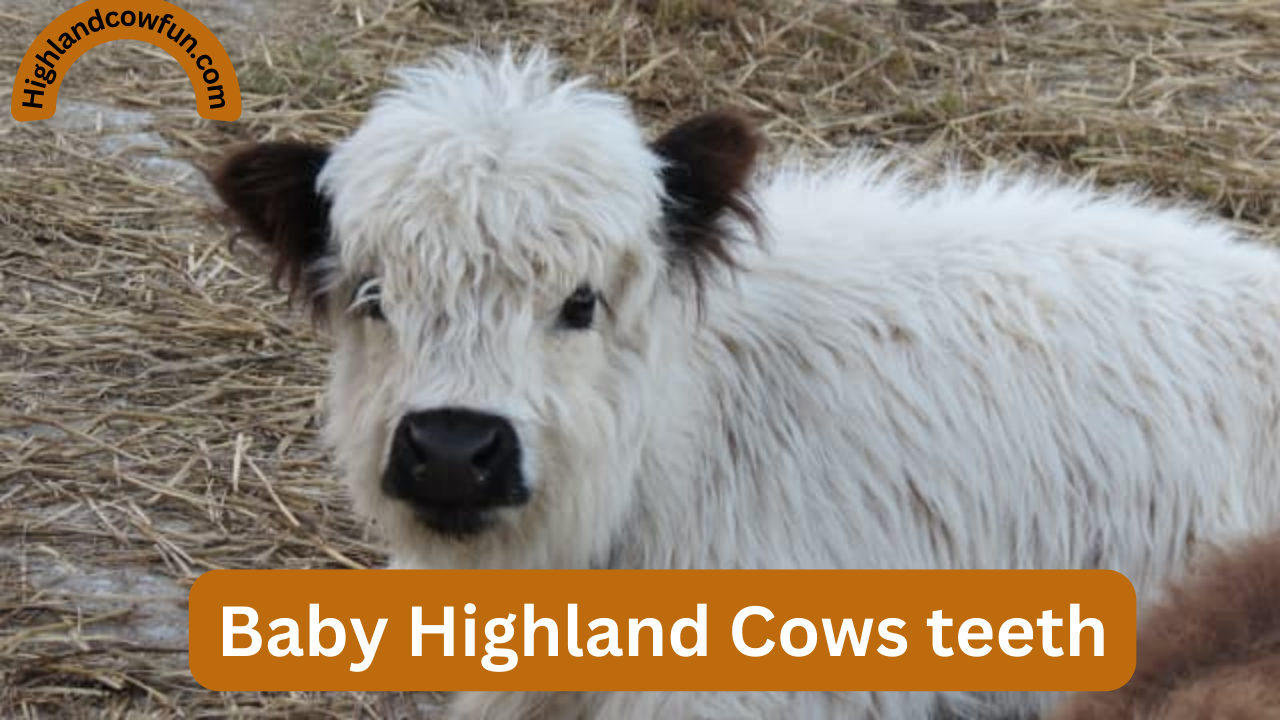Raising baby highland cows can be an enriching experience for any farmer or enthusiast. These adorable creatures are known for their fluffy coats and endearing personalities. However, one aspect of their care that often goes overlooked is their dental health. In this comprehensive guide, we’ll delve into everything you need to know about baby highland cow teeth, from their development to common issues and preventive measures.
Understanding Baby Highland Cow Teeth
Like humans, baby highland cows go through various stages of dental development. At birth, they typically have a set of deciduous teeth, also known as milk teeth, which eventually give way to permanent teeth as they mature. These teeth play a crucial role in chewing, grazing, and overall nutrition intake.
Factors Affecting Baby Highland Cow Teeth
Several factors can influence the health and development of baby highland cow teeth. Diet and nutrition are paramount, as a balanced diet rich in essential nutrients promotes strong teeth and gums. Additionally, genetics play a significant role, as certain breeds may be predisposed to dental issues.
Common Dental Issues in Baby Highland Cows
Teething problems are common among baby highland cows, often leading to discomfort and irritability. Overcrowding and malocclusion, where the teeth don’t align correctly, can also occur and may require intervention to prevent further complications.
Importance of Dental Care
Proper dental care is essential for ensuring the well-being of baby highland cows. Implementing preventive measures such as providing chew toys and regular dental check-ups can help maintain optimal oral health and prevent potential issues down the line.
Tips for Ensuring Healthy Teeth
Ensuring healthy teeth in baby highland cows involves a multifaceted approach. Alongside a nutritious diet, maintaining good oral hygiene is crucial. This includes regular brushing, inspection of teeth and gums, and prompt action in case of any abnormalities.
Signs of Dental Problems
It’s essential for farmers and caretakers to be vigilant for signs of dental problems in baby highland cows. Behavioral changes such as reluctance to eat or excessive drooling may indicate underlying issues that require attention. Consulting a veterinarian is advisable if any concerns arise.
Consulting a Veterinarian
When it comes to the dental health of baby highland cows, seeking professional advice is paramount. Veterinarians specializing in livestock can provide valuable insights and recommend appropriate treatment options, ranging from dental cleanings to corrective procedures if necessary.
Conclusion
In conclusion, proper dental care is crucial for the overall health and well-being of baby highland cows. By understanding the development of their teeth, recognizing common issues, and implementing preventive measures, caretakers can ensure that these adorable creatures enjoy a lifetime of healthy smiles.
FAQs
How many teeth do baby highland cows have?
Baby highland cows typically have a set of deciduous teeth, which are eventually replaced by permanent teeth as they mature.
What should I feed my baby highland cow for optimal dental health?
A balanced diet rich in essential nutrients is key for promoting healthy teeth and gums in baby highland cows.
How often should I brush my baby highland cow’s teeth?
Regular brushing is recommended as part of a comprehensive oral hygiene routine for baby highland cows.
What are some signs of dental problems in baby highland cows?
Behavioral changes such as reluctance to eat or excessive drooling may indicate underlying dental issues in baby highland cows.
When should I consult a veterinarian about my baby highland cow’s dental health?
It’s advisable to consult a veterinarian if you notice any signs of dental problems or abnormalities in your baby highland cow’s teeth or gums.

Hi there! This is George, and I am very excited to share the experience and knowledge about the world of cattle by sharing with you the cute Mini Highland Cow. Over many years, more precisely cattling-oriented online forums, I invested a lifetime learning and sharing information on lovely creatures.










